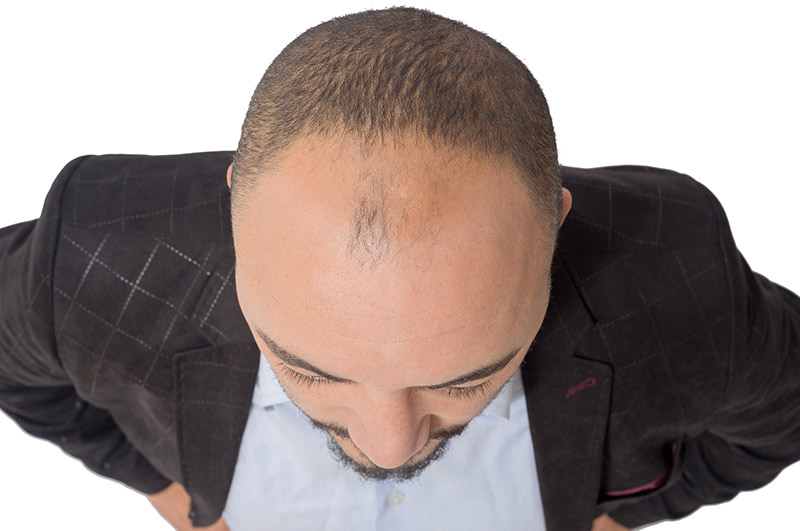

 Researchers estimates that as much as 80% of men younger than 70 years of age get affected by male pattern baldness. It occurs when hair follicles shrink and only grow tiny hair that doesn't stay viable for long periods of time.
Sure, you might be a fan of Bruce Willis, and the bald look might suit your face if you've got looks like Jason Statham or Dwayne "The Rock" Johnson, but most men are terrified of losing their hair. But why does it happen to some men and not others?
Researchers estimates that as much as 80% of men younger than 70 years of age get affected by male pattern baldness. It occurs when hair follicles shrink and only grow tiny hair that doesn't stay viable for long periods of time.
Sure, you might be a fan of Bruce Willis, and the bald look might suit your face if you've got looks like Jason Statham or Dwayne "The Rock" Johnson, but most men are terrified of losing their hair. But why does it happen to some men and not others?
Believe it or not, the hormone called androgen that is responsible for the growth of facial hair is known to suppress the growth of scalp hair. With increasing age, androgens stimulate hair growth on the face, but can suppress it at the temples and scalp vertex, a condition that has been referred to as the 'androgen paradox'. The following hormonal changes that come with age are also responsible for men's hair loss:
Hormones are the primary factor that leads to male pattern baldness. Men having premature androgenic alopecia usually have a lower amount of globulin, testosterone, follicle stimulating hormone (FSH), and epitestosterone compared to men with thicker hair. There are also many other factors that come into play when it comes to hormonal imbalances.
Genetics play a huge role in determining whether someone will have androgenic alopecia or not. There is evidence suggesting that people who have a genetic disposition for baldness are more likely to start losing their hair from an early age.
Because of the fact that androgen receptors and androgens are the two factors that initiate alopecia, this topic still remains the subject of much research.
A recent study found that men who go bald early tend to have an unusually abnormal amount of protein called prostaglandin D2. This protein, along with its derivatives is one of the leading causes that block hair growth, which eventually leads to baldness.